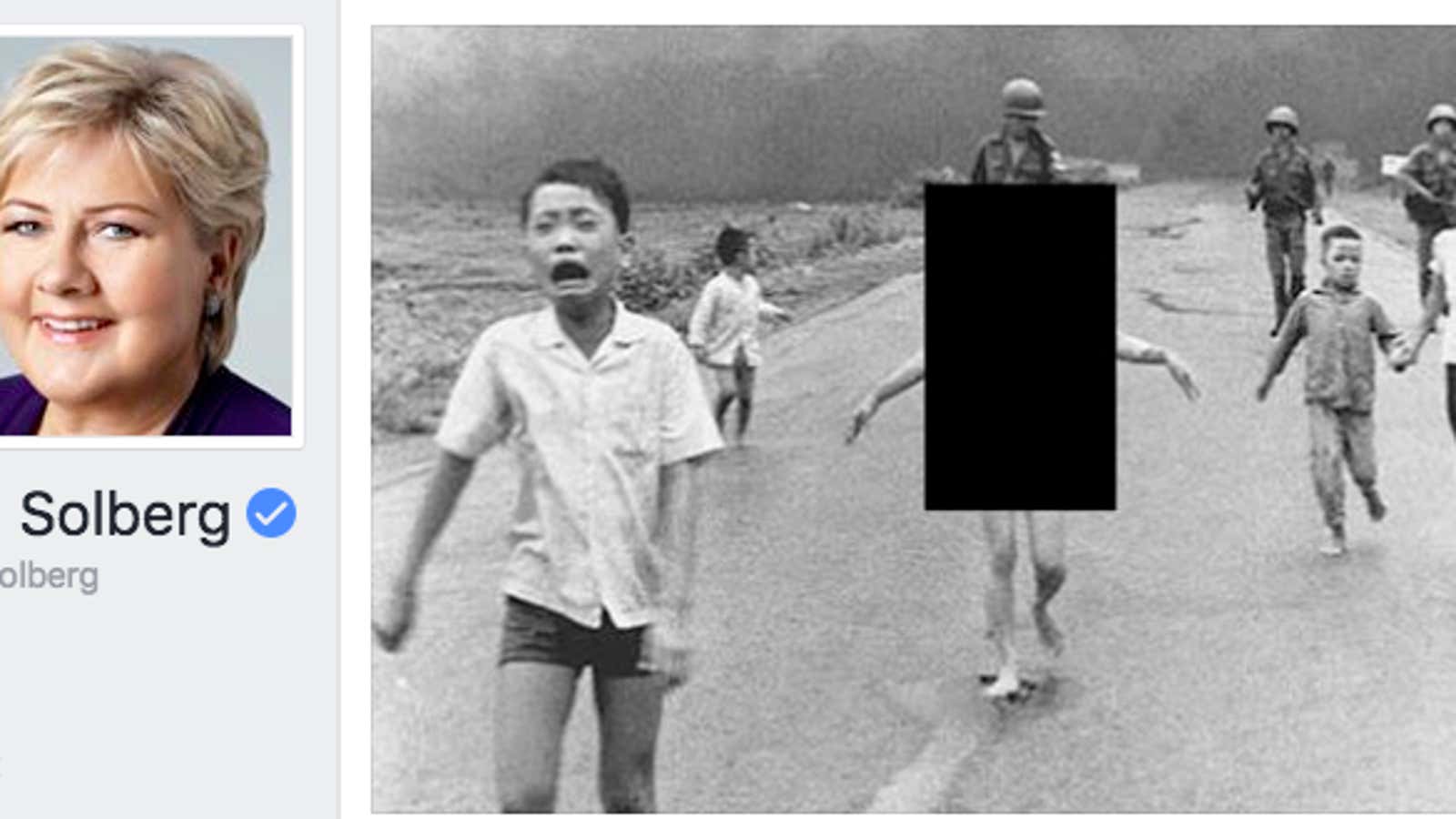Facebook just can’t seem to engineer news.
Two weeks ago the best-selling Norwegian author Tom Egeland wrote a Facebook post about the “photographs that changed the history of warfare,” according to The Guardian. One of the photos Egeland included in his piece was “The Terror of War,” a Pulitzer Prize-winning photo showing a naked 9-year-old girl, Phan Thi Kim Phuc, and other children fleeing napalm bombing during the Vietnam War, their faces distended in terror. The photo was removed for violating Facebook’s policy on nudity, and Egeland’s account was suspended for 24 hours. “It is absolutely absurd,” he told the Verdens Gang newspaper (in Norwegian).
Subsequently a Norwegian journalism association and other newspapers posted the photo to Facebook to protest the platform’s rules, the Local reported, only to have their images removed too. Aftenposten, a widely-circulating newspaper in Norway, posted the photo to its Facebook page, linking to an article the outlet had published on Egeland’s suspension.Aftenposten promptly received an email from a Facebook office in Hamburg asking it to “remove or pixelize” the photo.
The issue came to a head Sept. 9 after Norway’s prime minister, Erna Solberg, also posted the iconic photo to her Facebook page to protest “censorship” by the social network. “I say yes to a healthy, open, and free debate on the internet,” she wrote in Norwegian. “But I say no to this form of censorship.”
Her photo was later removed by Facebook, according to a subsequent post by Solberg. She posted a version of the photo with nudity blacked out. “What Facebook does by removing images of this kind, good as the intentions may be, is to edit our common history,” she wrote. ”They must see the difference between editing out child pornography and editing out history,” she told Reuters.
Late Sept. 9. Facebook capitulated,saying it had enforced its Community Standards incorrectly–this time–and reinstated the Vietnam War photo. In a statement, the social media company said, “After hearing from our community, we looked again at how our Community Standards were applied in this case,” according to Reuters. The company said it recognized “the history and global importance of this image in documenting a particular moment in time.”
The furor is the latest crack in Facebook’s insistence that it is not a media company. In May, its Trending feature, which highlights certain news stories, triggered a row in the US after Gizmodo reported that Facebook asked editors to inject political bias into the results. About two weeks ago, Quartz reported that Facebook had fired its entire Trending editorial staff, then the company endured internet mockery after its algorithm selected and prominently displayed a fake news item.
Maybe it should hire some human editors.
